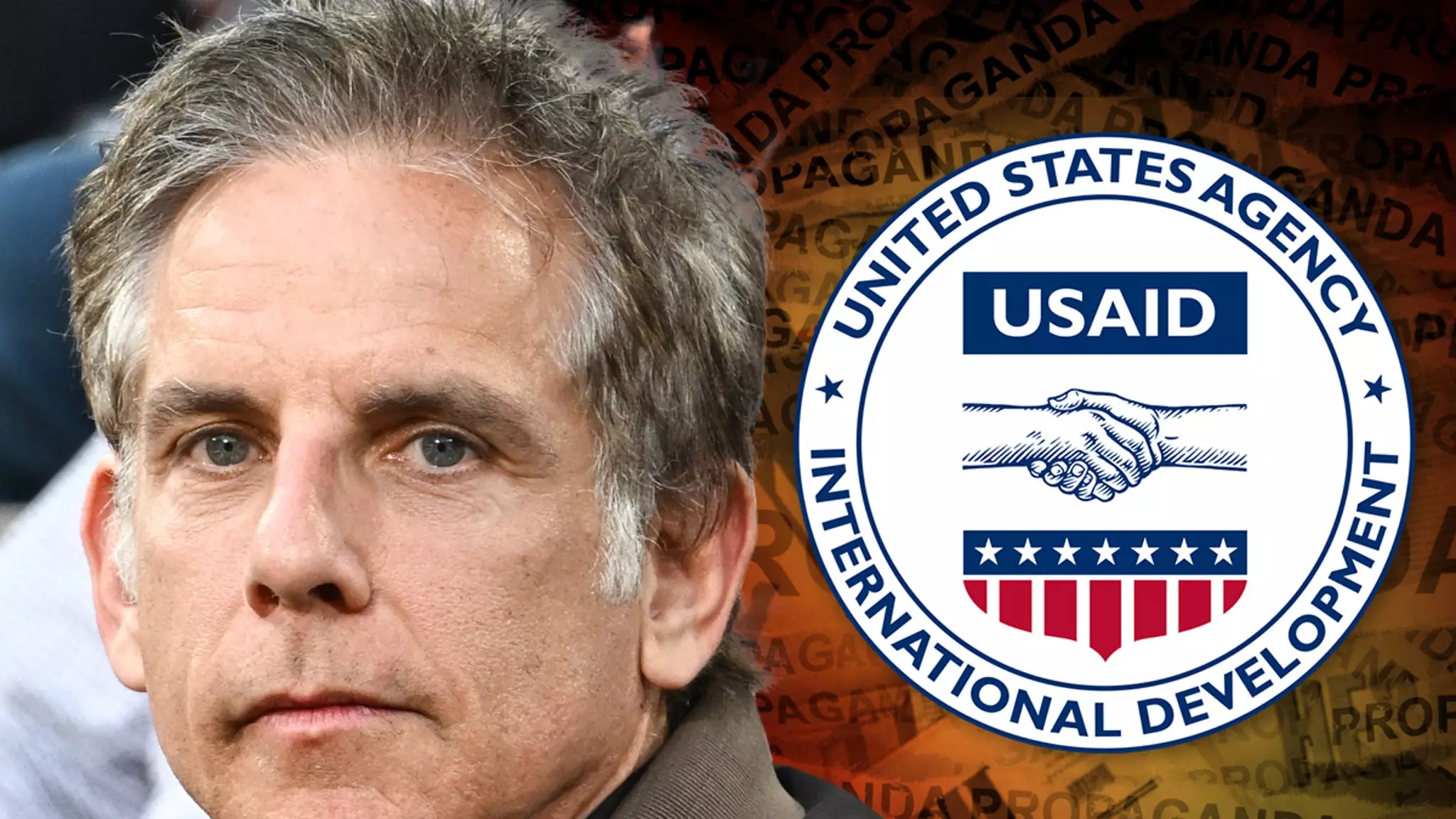Ben Stiller is no stranger to the public eye, but amidst the chaos of a global humanitarian crisis, the actor found himself at the center of a controversy that spun out of control. Stiller’s self-funded visit to Ukraine drew allegations that he, among other celebrities, received remuneration from the U.S. Agency for International Development (USAID) to lend a hand in a time of dire need. The claims originated from a misleading video circulated on social media, primarily amplified by influential figures including Elon Musk, which unfairly implicated Stiller and others in nefarious activities tied to governmental funding.
In response to the rampant misinformation, Stiller was quick to set the record straight. He publicly declared that the narrative claiming he profited from his humanitarian actions is “totally false.” His heartfelt dedication to aiding those affected by the ongoing devastation in Ukraine stands undeterred by the unfounded allegations. Stiller stated unequivocally that his journey to Ukraine was entirely self-funded and devoid of any support from USAID, characterizing the circulating claims as “lies coming from Russian media.”
These emphatic denials serve not only to clear his name but also highlight the alarming ease with which misinformation can spread in our digital age. This incident illustrates how misleading narratives can gain traction and how they can distract attention from the real issues at hand—issues that thousands of individuals in Ukraine are currently facing.
The motivation behind celebrity involvement in humanitarian missions has often been a topic of debate. While some argue that it draws attention to critical issues, others contend that their participation can sometimes cloud the reality of the situations they are aiming to support. Stiller’s visit to Ukraine was not merely a publicity stunt but a genuine attempt to advocate for displaced individuals suffering from the aftermath of war. Meeting with Ukrainian President Volodymyr Zelensky, whom he described as his “hero,” was undoubtedly a poignant moment that underscored his commitment to raising awareness and garnering support.
In a video message recorded for World Refugee Day, Stiller used his platform to call for humanitarian assistance, emphasizing that support for the displaced is essential. This approach shifts the narrative from celebrity theatrics to a compelling call for collective action—a narrative desperately needed in today’s tumultuous climate.
The advent of social media platforms like X has dramatically transformed how information, whether correct or false, is disseminated. The initial spread of the misleading video was fueled by extensive retweets and endorsements from high-profile figures, including Donald Trump Jr. and Scott Baio. This incident is indicative of a broader issue in public discourse, where sensationalism often overshadows substantive discussion.
As controversies unfold, it becomes increasingly vital for public figures to take a stand against misinformation and for audiences to critically assess the information presented to them. Stiller’s proactive response to the rumors reinforces the significance of accountability in an age where truth can often become obscured.
Conclusively, Ben Stiller’s willingness to confront falsehoods about his humanitarian endeavors exemplifies the importance of vigilance and integrity in an era rife with misinformation. His continued advocacy for Ukraine deserves recognition amidst the noise, advocating a message far more important than the distractions that attempt to distort it.

